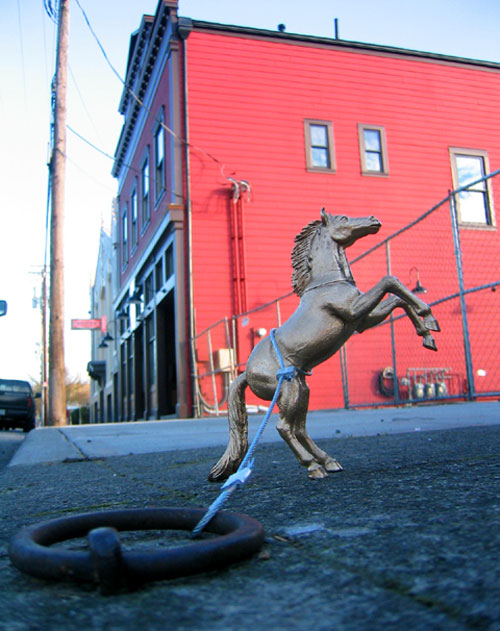My Links of Choice; and Why

So I look at all these weblogs and they all have links, but I always want a more specific understanding of what those links are about. So here are my reviews of my links. Enjoy!
Worldchanging: As many of my faithful readers have probably noticed this I love this site. This sight is dedicated to the notion that “a better world is here,” that the time for waiting for things to change is past and that we, as concerned and well intentioned people, have to start saving our world today. And the good news is that it is possible, today. The format is almost exclusively tools, ideas, models, and people which are moving us in the right direction. It strikes a nice balance between positive tools and alternate social models. The site is organized into seven categories; Stuff, Shelter, Cities, Communities, Business, Politics, Planet. Definitely worth a regular read. What I’ve used from Worldchanging: 1, 2, 3, 4, 5, 6, 7, 8, 9.
Eyeteeth: This is Paul Schmelzer’s blog. He is always posting something interesting about the convergence of art and society. I also appreciate his ability to intertwine socially relevant art posts with other with purely political pieces. His posts short and to the point, which I greatly appreciate, if I want to know more I can follow-up with the links on my own. What I’ve poster from Eyeteeth: 1, 2, 3, 4.
We-Make-Money-Not-Art: This site is dedicated to exploring “the intersection between art, design and technology.” There is often really interesting posts about the ways artists are using new technology and reconceptualizing old tools to create really imaginative art that makes important statements about our world. I find many of posts really hard to get through. They throw a lot at you without much filtering, but if you can get through them you can find some real gems. What I’ve used from We-Make-Money-Not-Art: 1, 2, 3, 4.
Inhabitat: This is a great site for useful information of environmental sustainability. “Inhabitat.com is a weblog devoted to the future of design, tracking the innovations in technology, practices and materials that are pushing architecture and home design towards a smarter and more sustainable future.” This site because it does not deal with art, however, as artists we need to push sustainability not fallow behind and Inhabitat has clear, practical, and efficient posts on a wide range of environmental design and technology issues. They are also great about posting simple articles for people without science or engineering degrees. What I’ve used form Inhabitat: 1, 2.
Coco Fuesco:
Community Arts Network: This is a great site with tons of information about cultural organizing and art based community development. I used many essays from this site in my final paper last semester.
feels like i’ve been driving north...: This is my home girls weblog. We have similar areas of interest in terms of helping people take control and recreate our culture and use these skills to strengthen their communities. She tends to approach these issues from a more social documentation media literacy point of view.Labels: Personal

0 Comments:
Post a Comment
<< Home